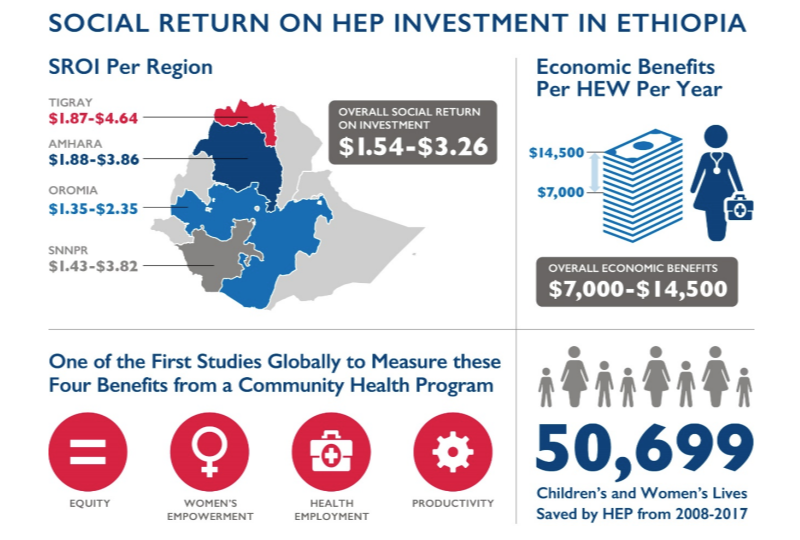A senior nurse attends to pregnant women at the Fort Portal Regional Referral Hospital Antenatal Care Clinic in Uganda while nursing students observe. Photo credit: URC
Human Resources for Health (HRH2030)
The Challenge
With an estimated worldwide human resources for health (HRH) deficit of 18 million by 2030, enhancing the size and proficiency of the health workforce has been recognized as a fundamental component of health systems strengthening (HSS) in low- and middle-income countries. HRH2030 helps countries strengthen their health workforces to better meet the needs of their populations, especially with regards to ending preventable maternal and child deaths, controlling the HIV/AIDS-epidemic, achieving the goals of Family Planning 2020, and attaining universal health coverage globally.
Overview and Objectives
USAID awarded HRH2030 to Chemonics International, with URC as a notable sub-partner. Since then, URC and the other partner organizations worked together to provide cutting-edge technical assistance, leadership, and evidence towards the advancement of global HRH.
HRH2030 worked to:
- Increase health worker performance and productivity;
- Increase the number, skill mix, and competency of the health workforce;
- Strengthen HRH/HSS leadership and governance; and
- Build the sustainability of investments in the health workforce.
URC contributed its technical leadership in HSS to HRH2030 by developing health workforce skills and competencies, continuously improving the quality of care, motivating health workers and managing their performance, and applying an implementation science approach to its learning agenda. We leveraged our relationships with country and global networks – including the Global Health Workforce Alliance – to strengthen HRH at the national and local level.
Applying our project successes with USAID ASSIST and TRAction, we used proven methodologies that focus on community-centered approaches where local people solve local solutions to address performance improvement, health staff utilization, and clinic management in order to build a stronger global health workforce.
Achievements
Assessments
- Rapid HRH assessment in Malawi and Zambia
- Assessment and mapping of community-based cadres in Kenya and South Africa
Tools
- Human Resources for Health Optimization Tools (HOT4): Set of Excel-based tools developed for anti-retroviral therapy, family planning, and primary health care (PHC) service delivery
- Pilot of health worker productivity and performance toolkit in Nigeria and Tanzania
Research
- Analysis of increases in women’s participation in leadership roles and its impact on increased investment in social and health services in Senegal and Madagascar
- Predicting and Planning the Skill Mix of the Health Workforce
- Improving Human Resource Forecasting for Healthcare Services: Global Implications of a Next-Generation Planning Solution
- Retrospective assessment of social return on investment in community health extension workers program in Ethiopia

Country-level implementation
- Mali: URC-led team applied community-based quality improvement (QI) to PHC and integrated service delivery efforts
- Jordan: Two seconded staff to support national-level HRH capacity building
- Botswana: URC-led team applied community-based QI in support of 95-95-95 targets and PEPFAR service delivery partners